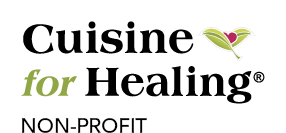
Chronic conditions, such as diabetes, autoimmune disorders, and cardiovascular diseases, have been linked to an increased risk of developing cancer, heart issues, and organ failure. Common threads, such as inflammation, shared risk factors, and the impact of long-term medical treatments, contribute to this complex relationship. In this blog, we will explore the intricate connection between chronic illness and life-threatening disease, shining a spotlight on the role of nutrition in influencing both the development of chronic conditions and the risk of life-threatening illness.
- Inflammatory Pathways: Chronic inflammation is a hallmark of many chronic illnesses and has also been identified as a driver in the development of cancer. Conditions like rheumatoid arthritis, inflammatory bowel disease, and chronic respiratory disorders create an environment conducive to the initiation and progression of cancerous cells.
- Shared Risk Factors: Lifestyle factors, such as a diet void of nutrients, lack of physical activity, and smoking, are not only associated with chronic conditions but also significantly contribute to the risk of cancer. Recognizing and addressing these shared risk factors is crucial in breaking the chain that links chronic illness to cancer.
- Impact on Immune Function: Chronic illnesses can impact immune function, compromising the body’s ability to detect and eliminate abnormal cells. This weakened immune response may contribute to an increased risk of cancer development and progression.
Nutrition emerges as a powerful tool in influencing the development and progression of both chronic illnesses and cancer. Adopting a well-balanced and nutrient-dense diet can play a pivotal role in mitigating risk factors, managing inflammation, and supporting overall health.
- Antioxidant-Rich Foods: Antioxidants, found in fruits, vegetables, and whole grains, play a crucial role in neutralizing free radicals and reducing oxidative stress.
- Anti-Inflammatory Diet: A diet that focuses on anti-inflammatory foods, such as fatty fish, nuts, and leafy greens, can help modulate the inflammatory pathways associated with both chronic conditions and cancer. Limiting the intake of pro-inflammatory foods, such as processed and sugary foods, is equally important.
- Balancing Macronutrients: Balancing macronutrients, including proteins, carbohydrates, and fats, is essential in managing chronic conditions and reducing the risk of cancer. For example, individuals with diabetes may benefit from carbohydrate management, while a heart-healthy diet may involve reducing saturated fats.
- Supporting Immune Function: Adequate nutrition is vital for maintaining a robust immune system. Nutrients such as vitamin C, vitamin D, and zinc play key roles in supporting immune function.
By understanding the shared risk factors, addressing inflammation through dietary choices, and supporting immune function, individuals can take proactive steps to reduce the risk of both chronic conditions and cancer. Nutrition is such an integral part of healing, and it is a journey no one should have to make alone. Cuisine for Healing offers healthy, well-balanced options, packed with nutrients for optimal immune system support.









